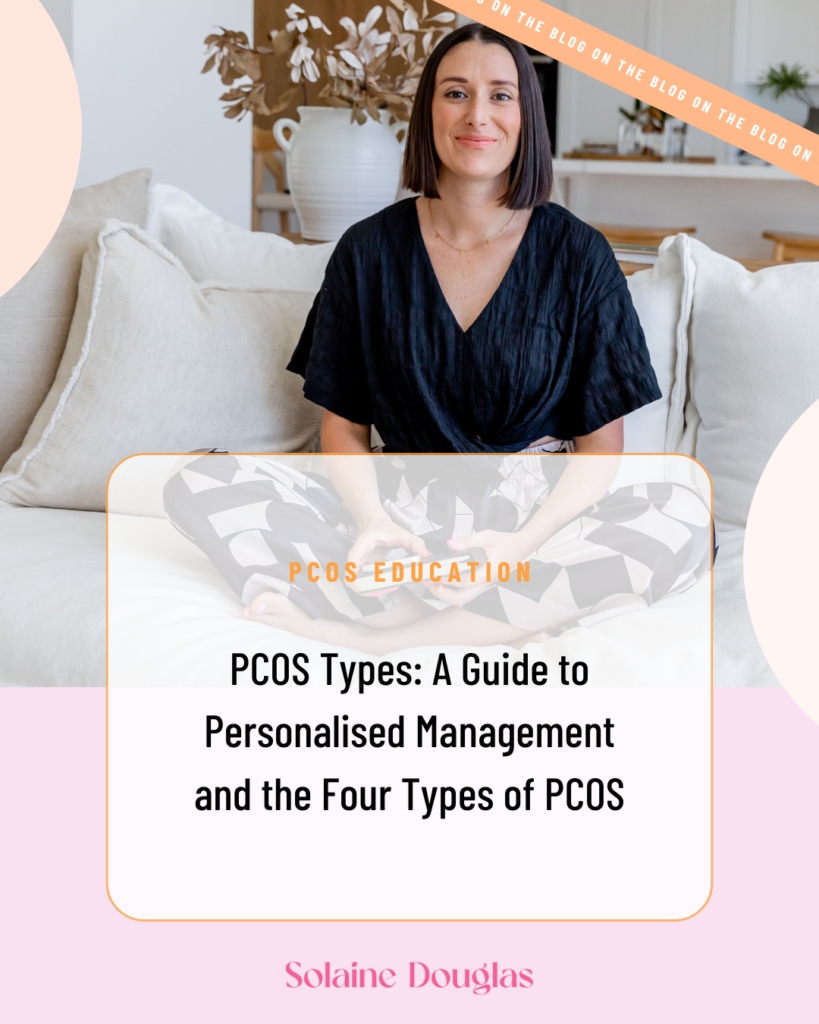PCOS Types: A Guide to Personalised Management and the Four Types of PCOS
August 22, 2024

Polycystic Ovary Syndrome (PCOS) is a complex condition with varying symptoms and underlying mechanisms. While it’s often simplified into “types” for easier understanding and management, it’s important to recognise that each case of PCOS can be unique. Here, we explore the commonly discussed types of PCOS and emphasise why blood sugar control remains a crucial nutritional intervention for all.
The Four Types of PCOS
Recognising different types of PCOS can helpful in tailoring more effective treatment strategies. Here’s a look at the four functional types commonly identified:
- Insulin-Resistant PCOS: This is the most common type, where the body doesn’t use insulin effectively, leading to increased insulin and testosterone levels, which can exacerbate PCOS symptoms. Key indicators include weight gain, sugar cravings, fatigue, and skin tags. Testing for fasting insulin levels can confirm this type.
- Inflammatory PCOS: Inflammation plays a significant role in this type of PCOS. Symptoms often include fatigue, joint pain, and gastrointestinal issues like IBS, alongside the usual PCOS symptoms. A high-sensitivity C-reactive protein (hs-CRP) test may help diagnose this type, it’s important to note that is hs-CRP is not elevated it doesn’t exclude this type of PCOS.
- Thyroid-Related PCOS: Thyroid function is crucial to overall hormonal balance, and dysfunctions can mimic or worsen PCOS symptoms. Symptoms like hair loss, anxiety, and irregular menstrual cycles may point to this type. Essential tests include TSH, T4, T3, and thyroid antibody tests.
- Adrenal PCOS: Less common, this type involves an abnormal increase in adrenal androgens like DHEA-S, without the insulin resistance typically seen in other types. Symptoms are often related to stress and may include anxiety and overthinking. A DHEA-S test is recommended for diagnosis.
Management Strategies
While each type of PCOS may require specific approaches, the foundation of treatment often involves lifestyle changes, particularly in diet and exercise:
- Dietary Adjustments: Regardless of the type, a low-glycemic (low-sugar) diet is beneficial. This helps manage insulin levels and reduce inflammation, providing relief from PCOS symptoms.
- Regular Exercise: Engaging in regular physical activity helps improve insulin sensitivity and can reduce stress, aiding in the management of all types of PCOS.
- Specific Treatments: Depending on the type, treatments may include metformin for insulin resistance, anti-inflammatory supplements for inflammatory PCOS, thyroid hormone replacements, or stress management techniques for adrenal PCOS.
Understanding your specific type of PCOS is a step towards personalised treatment, which can be more effective in managing symptoms. Although PCOS cannot be cured, with the right strategies, its symptoms can be significantly reduced, allowing for an improved quality of life.

